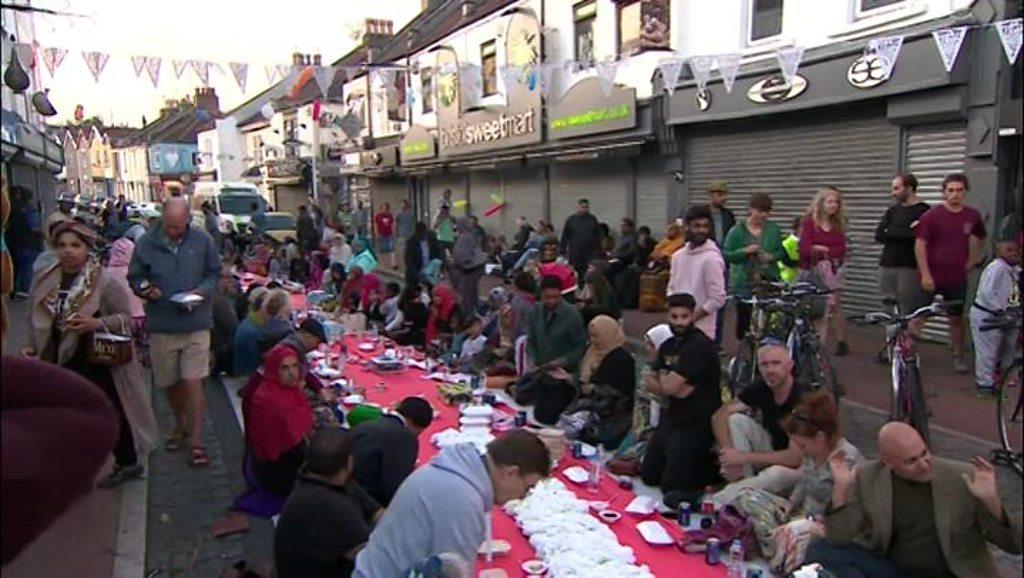Easton Grand Iftar scaled back due to Covid worries
- Published
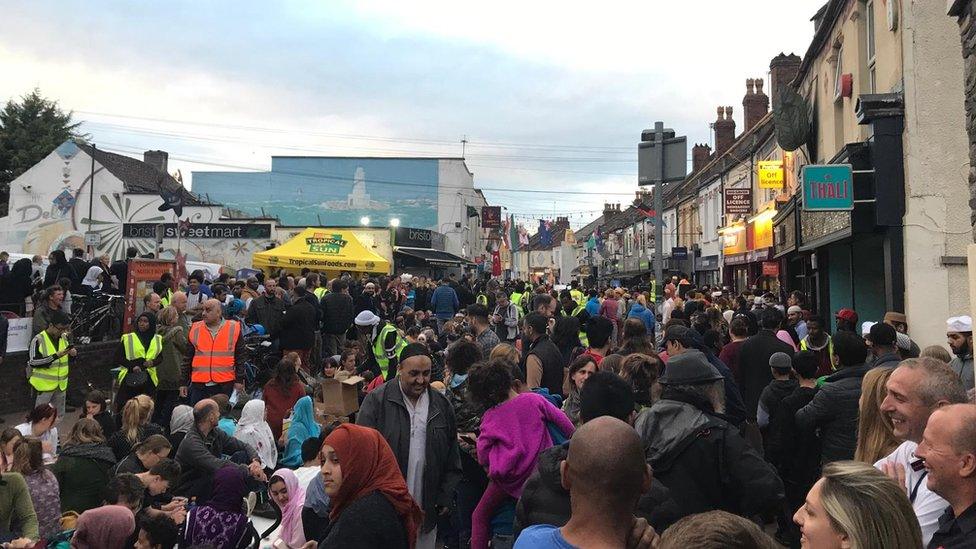
The Grand Iftar has doubled in size since it was first set up
The organisers of a Grand Iftar have made the first post-Covid event invite-only.
The free feast, which marks the end of fasting during the Muslim holy month of Ramadan, can attract as many as 6,000 people to St Mark's Road in Bristol.
Only 150 people will be invited to this year's event to avoid big crowds potentially spreading the virus.
The event began in response to the terror attack at the Manchester Arena in 2017.
Those behind the Iftar wanted to promote a greater understanding of Islam as well as sharing their faith and food with the community.
During the pandemic the event moved online but will return on 28 April but with a much smaller capacity.
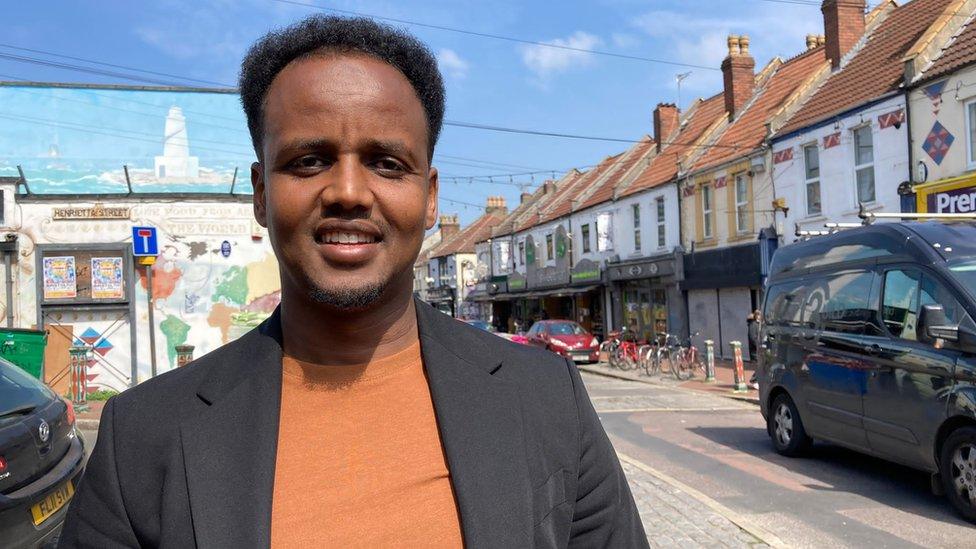
Mohamed Sayaqle said organisers had listened to the concerns of local people
Co-organiser Mohamed Sayaqle, chairman of Bristol Somali Voice, said despite only 150 people being invited, 500 meals would be cooked and many given away across the city, including to homeless people.
"Ramadan is the month of devotion, of charity - it is about sharing. It also creates this space for Muslims and non-Muslims to sit together and break the fasting at the same time," he said.
"After listening to the dialogue with local people and also considering the Omicron variant of coronavirus, we have decided to make this year very small and hopefully next year we can go back to normal."
Arif Khan, chairman of the Council of Bristol Mosques, said the Bristol event had inspired people in other parts of the country.
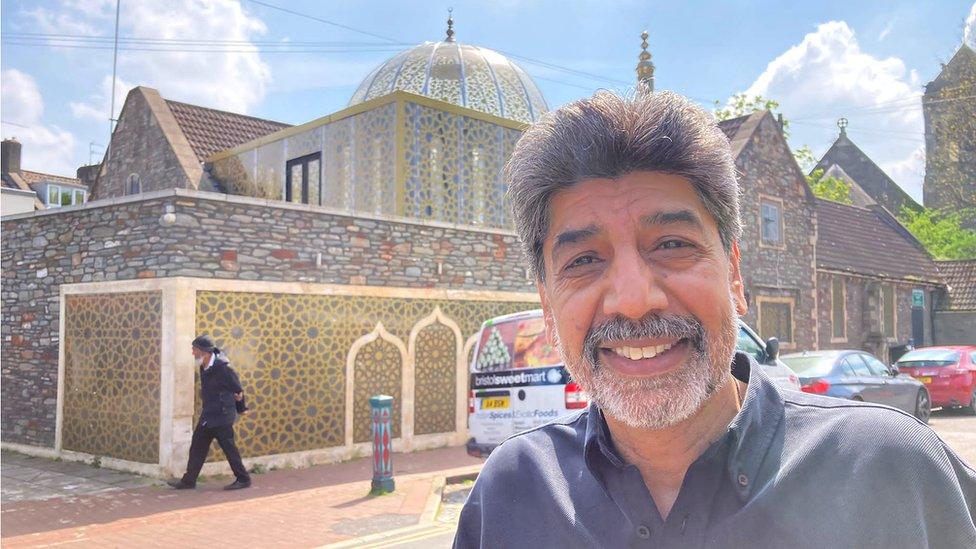
Arif Khan said other events had been inspired by the Bristol Grand Iftar
He said: "The actual breaking of the bread, the breaking of the fast with everyone together - this really sets an example. People from all around England and even abroad have called us and asked us for advice.
"It feels like someone 'up there' was watching us and helping us make it successful."
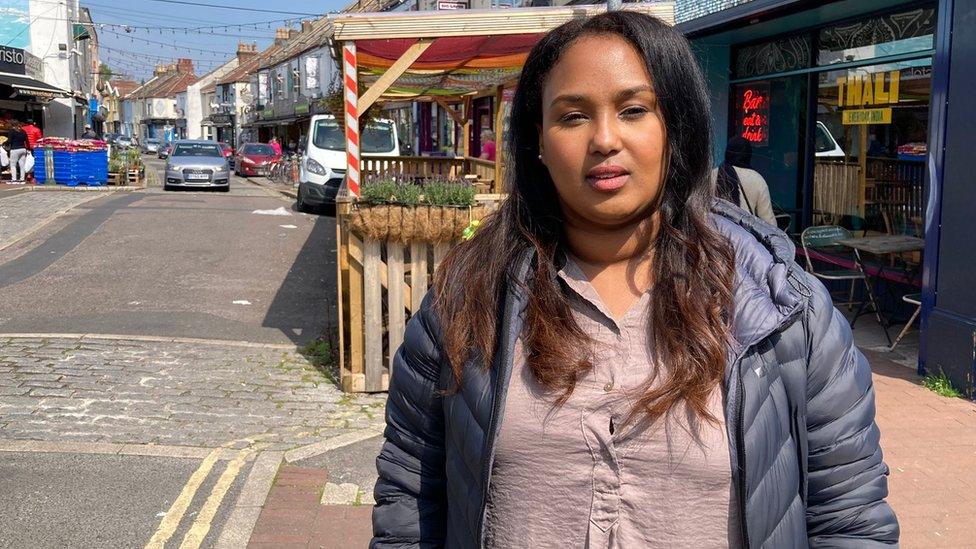
Moestak Hussein uses her community development background to help put the Iftar together
Another organiser, Moestak Hussein, said welcoming the event back, even with lower numbers, was important.
"Iftar generally is something you do with your family, it can be a month of cohesion within the family itself," she said.
"It's been difficult because people haven't been able to do that during the pandemic."
Lesley Wynne, who runs the community cafe linked to the nearby St Mark's Church, added: "It's a great opportunity to meet people out on the street, talking and sharing."
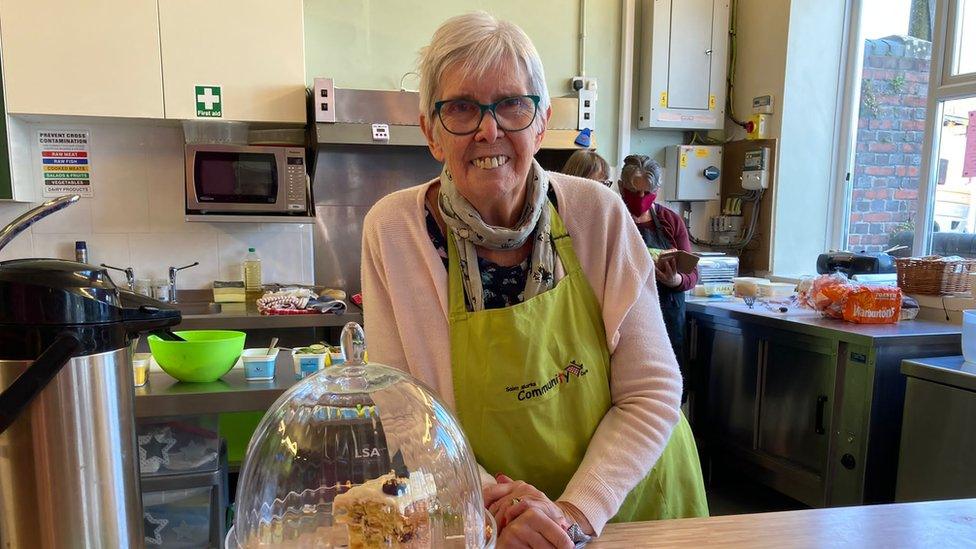
Lesley Wynne, from the St Mark's Church community cafe, said the Iftar had "set the benchmark" for community events

Follow BBC West on Facebook, external, Twitter, external and Instagram, external. Send your story ideas to: bristol@bbc.co.uk , external
- Published3 May 2021
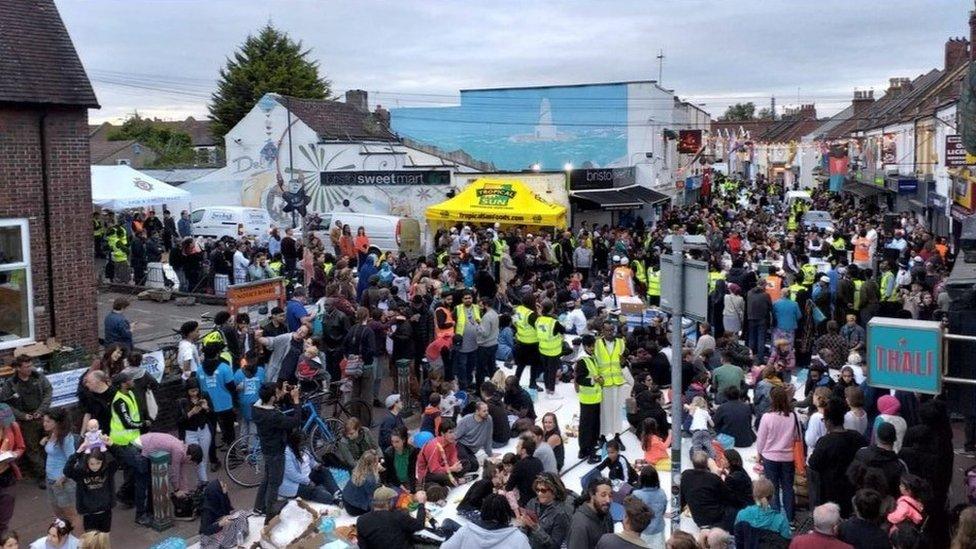
- Published18 May 2020
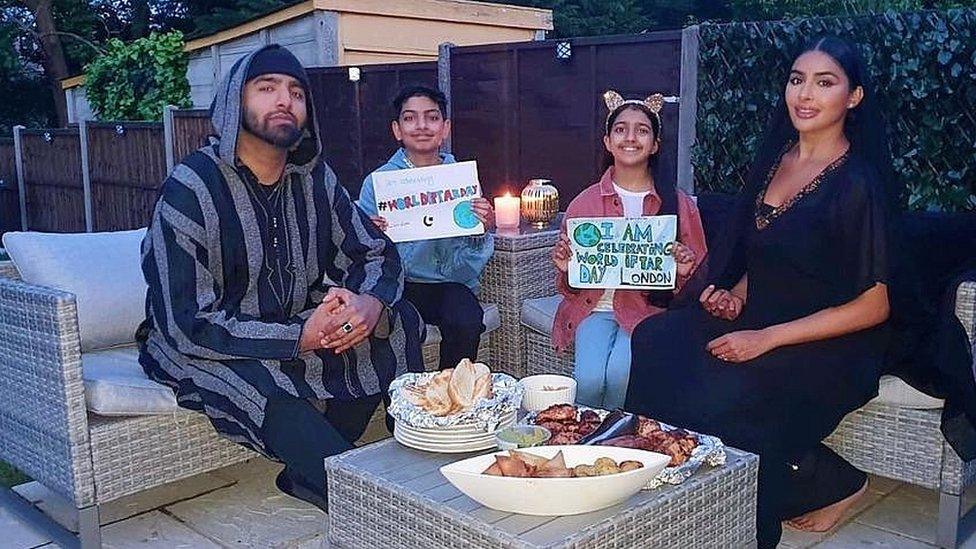
- Published23 June 2017
